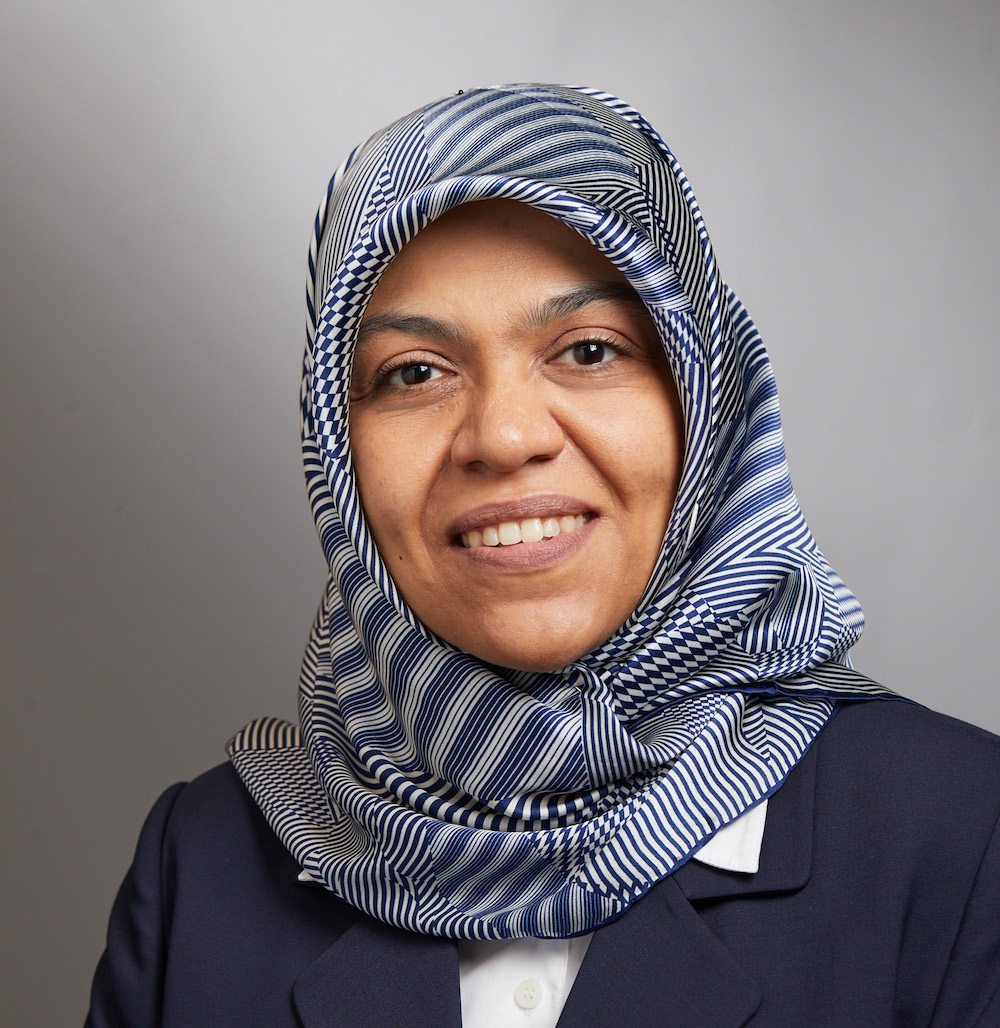In Focus: Crisis Management in Childhood Mental Disorders – The Collaborative Work of a Village
In Focus: Crisis Management in Childhood Mental Disorders – The Collaborative Work of a Village
By Monica Arora, MD, Child and Adolescent Psychiatric Inpatient Unit, CHI Health
& Ayse Coskun, MD, Creighton University School of Medicine
In addressing crises in childhood mental health disorders, a comprehensive, multidisciplinary approach is essential. The goal is to provide care that is tailored to the unique needs of each child and family, involving a diverse team that includes psychologists, social workers, psychiatrists, occupational therapists, recreational therapists, and music therapists. This approach ensures continuity of care across various settings—inpatient and outpatient. Our multidisciplinary team works together closely to provide integrated, patient-centered care. Daily rounds and collaboration between the psychiatrist, psychologist, and broader care team ensure that every aspect of the child’s needs is addressed. Additionally, our team prioritizes teaching and training staff and residents, equipping them with the skills necessary to deliver high-quality mental health care to children in crisis.
Age of consent for mental health services varies by state and type of treatment. In most states, the age of majority is 18 although in Nebraska the age of majority is 19. Although a minor who is 18 years old may consent to mental health services. Parents or legal guardians must consent to the treatment of minors under the age of 18.
The Mental Health Continuum of Care
Navigating through the process can be challenging. Our program offers integrated child- and family-centered care through the spectrum of services. The services are organized into a coordinated network to meet the diverse and changing needs of our patients and their families within the system and also collaboration with different child serving agencies within the community. Emphasis is on serving the youth and their families in the least restrictive setting that meets their needs. Services include outpatient, partial hospital program, residential program and psychiatric immediate care clinic (PICC). Before inpatient or residential hospitalization is considered, families should utilize available services across the child mental health continuum of care. Service options at various levels of care are described below.
Outpatient services
Our program is community-based psychiatry and behavioral health services and offers outpatient psychiatry and psychological evaluation services by the team of psychiatrists, nurse practitioners and psychologists. The focus is on promoting mental health through direct care, research, training, family support groups and collaborative treatment.
To assist with the access to care we have a psychiatry immediate care clinic. This clinic offers immediate access to a psychiatrist and mental health therapist. The goal of this clinic is to provide crisis intervention and bridge the gap in services until the patients and families can be established with appropriate outpatient services.
Inpatient Admission Process and Criteria
Understanding the admission process can help outpatient providers and families navigate the system more efficiently. Referrals for inpatient treatment often come from outpatient providers or emergency services, particularly when a child’s situation meets the American Academy of Child and Adolescent Psychiatry (AACAP) criteria for acuity and crisis management. Factors such as acuity, or the severity of the symptoms and imminent danger to self or others, and whether it’s a first-time admission or a return to inpatient care play a role in determining whether hospitalization is appropriate. Some cases, however, may not warrant inpatient admission, such as children who visit the emergency room but are better served by lower levels of care.
Acute Care and Crisis Intervention Unit
Once admitted to our inpatient unit, the average stay is 2-5 days, with the primary focus on acute care and crisis intervention. Patients’ treatment plan is established through the multidisciplinary team approach. Services include daily psychotherapy, participation in the therapeutic milieu, case management services, psychiatric evaluation, family-care team communication, appropriate referrals, and coordination of care if already have established outpatient care and outreach services. Our family care team approach includes a care conference that is held within 24 hours of admission, during which the psychiatrist contacts the family to discuss the child’s needs and priorities for treatment.
Throughout hospitalization, patients work closely with their therapists to identify personal goals and family therapy sessions are organized to ensure caregivers are involved. The therapeutic team also assesses potential community resources, medications, and safety planning to ensure the child is adequately supported after discharge.
Discharge Planning and Connecting Families with Resources
Discharge planning is led by a dedicated discharge coordinator, who works to tailor the plan to each patient’s specific needs. This includes the creation of a safety plan in collaboration with the family, as well as ensuring follow-up care is arranged. The 7-day discharge plan aims to bridge the gap to routine care by scheduling at least one appointment with an outpatient provider within the first-week post-discharge. If the family’s regular provider is unavailable or if the family has never established care with outpatient providers, PICC services or other psychotherapeutic support is provided.
Additional resources, such as Families Forever (for adopted children and parents), developmental disability services, and substance use disorder assessments, are available to assist families with specific needs.
Intensive Outpatient Programs and Partial Hospitalization Program
For children who no longer require inpatient care but still need structured interventions, intensive outpatient programs (IOP) and partial programs provide a critical bridge. It provides intensive care for patients who need more than outpatient care but do not require 24-hour monitoring. Partial hospitalization programs (PHP) can help prevent hospitalization and facilitate safe discharges for children and adolescents who are struggling with emotional distress and dysregulation. PHPs can also support transition care for patients who may be awaiting residential care or who require long-term therapeutic intervention.
Partial programs typically run Monday through Friday, offering full-day (PHP) or half-day (IOP) sessions depending on the child’s needs. An example of such a program is the Immanuel Medical Center’s Partial Program, a 2-3-week program that includes a combination of medication management, psychotherapy, recreational therapy, music therapy, and family visits.
Psychiatric Residential Treatment Facility
When lower levels of care prove insufficient, residential programs, also known as PRTF, offer a longer-term treatment option. Children typically stay 8-16 weeks, with the program length determined by clinical needs and insurance. Residential care is reserved for cases where other levels of care have been exhausted. These facilities differ from inpatient units in that they offer subacute care, including an academic program to help patients maintain progress toward educational goals and opportunities to transition back into the community with extended home visits and overnight visits with family. Children can also transition back to the school.
The Role of Psychiatrists and Psychologists in Collaborative Care
At every level of care, psychiatrists and psychologists work together to provide comprehensive care. Psychologists play a crucial role in completing cognitive assessments, including IQ and adaptive functioning testing and diagnostic clarification. They collaborate with the clinical team to implement evidence-based interventions tailored to each patient’s needs. Daily multidisciplinary rounds, involving physicians, trainees, therapists, and discharge coordinators, ensure that treatment plans are physician-guided and reflect the contributions of the entire team.
In conclusion, effective crisis management in childhood mental health disorders requires a collaborative, village-like approach. By leveraging the strengths of a multidisciplinary team, connecting families with essential resources, and ensuring continuity of care, we strive to meet the complex needs of children at every stage of the mental health continuum.

Monica Arora, MD
Child and Adolescent Psychiatrist, Attending, Child and Adolescent Psychiatric Inpatient Unit, CHI Health

Ayse Coskun, MD
Psychiatry Resident, Creighton University School of Medicine
“At every level of care, psychiatrists and psychologists work together to provide comprehensive care.”
More From Fall 2024
More From Fall 2024
President’s Message: Caregivers Need Care, Too
By Andrea Chronis-Tuscano, PhD
In Focus: Crisis Management in Childhood Mental Disorders
By Monica Arora, MD & Ayse Coskun, MD
Expert Recommendations: Suicide Prevention Resources for Clinicians & Caregivers
By Lucas Zullo, PhD
APA 2024 in Seattle Was One for the Books!
By Nicole Lorenzo, PhD & Kelsie Okamura, PhD
The SCCAP Conference Update
By Mary Louise Cashel, PhD
Updates From the SCCAP Student Development Committee
By Amanda Bennett & Hong Bui
Congratulations to Our Student Members on Graduation!
Fall 2024 Treasurer Update
By David A. Langer, PhD, ABPP
Leading into the Future with SCCAP LEAD Institute
By Erlanger “Earl” Turner, PhD
SCCAP Election Results
Call for Nominations for Upcoming SCCAP Board Positions
Announcing SCCAP Award Opportunities
EPCAMH Journal Update
By Mary A. Fristad, PhD, ABPP
Update from SCCAP Representatives to APA Council
By Mary Louise Cashel, PhD & Stephen Hupp, PhD
ABCCAP Board Certification Update
By David A. Langer, PhD, ABPP
AIRS SIG Update
By Alysha Thompson, PhD
Bilingual Psychologists SIG Update
By Hannah Jones, PhD
ADHD in Emerging Adults
By Traci M. Kennedy, PhD & Lauren Oddo, PhD, LCP
Infant & Early Childhood SIG Update
By Miller Shivers, PhD
Summer Treatment Program SIG Update
By Katie Hart, PhD & Sarah Tannenbaum, PsyD, ABPP
Diversity Committee Update
By Juventino Hernandez Rodriguez, PhD
Fellows Committee Update
By Martha C. Tompson, PhD
Science & Practice Committee Update
By Jennifer L. Hughes, PhD, MPH
Membership Committee Update
By Chrissy Cammaratta, PhD, ABPP
More From Fall 2024
More From Fall 2024
President’s Message: Caregivers Need Care, Too
By Andrea Chronis-Tuscano, PhD
In Focus: Crisis Management in Childhood Mental Disorders
By Monica Arora, MD & Ayse Coskun, MD
Expert Recommendations: Suicide Prevention Resources for Clinicians & Caregivers
By Lucas Zullo, PhD
APA 2024 in Seattle Was One for the Books!
By Nicole Lorenzo, PhD & Kelsie Okamura, PhD
The SCCAP Conference Update
By Mary Louise Cashel, PhD
Updates From the SCCAP Student Development Committee
By Amanda Bennett & Hong Bui
Congratulations to Our Student Members on Graduation!
Fall 2024 Treasurer Update
By David A. Langer, PhD, ABPP
Leading into the Future with SCCAP LEAD Institute
By Erlanger “Earl” Turner, PhD
SCCAP Election Results
Call for Nominations for Upcoming SCCAP Board Positions
Announcing SCCAP Award Opportunities
EPCAMH Journal Update
By Mary A. Fristad, PhD, ABPP
Update from SCCAP Representatives to APA Council
By Mary Louise Cashel, PhD & Stephen Hupp, PhD
ABCCAP Board Certification Update
By David A. Langer, PhD, ABPP
AIRS SIG Update
By Alysha Thompson, PhD
Bilingual Psychologists SIG Update
By Hannah Jones, PhD
ADHD in Emerging Adults
By Traci M. Kennedy, PhD & Lauren Oddo, PhD, LCP
Infant & Early Childhood SIG Update
By Miller Shivers, PhD
Summer Treatment Program SIG Update
By Katie Hart, PhD & Sarah Tannenbaum, PsyD, ABPP
Diversity Committee Update
By Juventino Hernandez Rodriguez, PhD
Fellows Committee Update
By Martha C. Tompson, PhD
Science & Practice Committee Update
By Jennifer L. Hughes, PhD, MPH
Membership Committee Update
By Chrissy Cammaratta, PhD, ABPP
